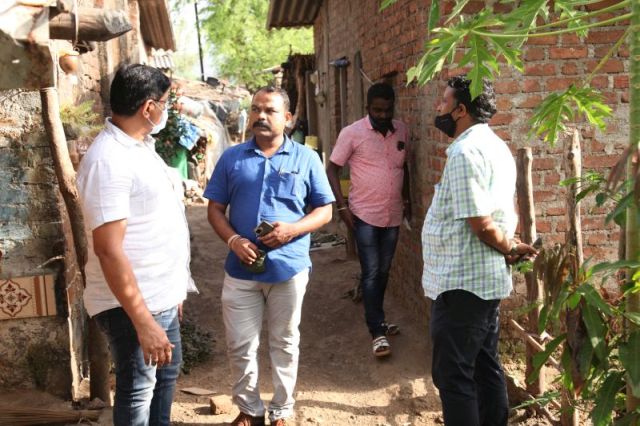The maverick Satish Satpute’s vision brought him from Sangli district of Maharashtra to the city of Mumbai. After completing his graduation, as with any Indian youngster, his mind was also curious about what to do next in life, where to go and what profession to choose.
Someone cherishes the dream of becoming a doctor. Someone else wants to be a businessman. But the path that Satish Satpute chose was not easy; he wanted to live for others instead of focussing only on himself. He wanted that every needy human being should have bread to eat, a house to live in, gainful employment, everything they deserve to raise their heads and live in society with pride.
Finding Purpose
When Satish saw the poor and needy around him, he had many questions: Why is this the condition of society? Why doesn’t the government do enough for the poor and needy, even after all these years of Independence? Why are the poor getting poorer and the rich getting richer and richer? This is the reason Satish came to Mumbai from his village Miraj, Sangli in the year 2015.
Mumbai is the headquarter of the Government of Maharashtra, where policies for the needy are made and rejected. He wanted to know – when there are thousands of government schemes for the upliftment of the poor, why do the benefits not reach the needy? He scoured the ministries of state government, gathered information, studied the schemes. He started working towards taking these schemes to those who needed their benefits the most. For this purpose, he also formed an NGO (non governmental organisation) called ‘Aaple Ghar’.
NGO Aaple Ghar
The biggest reason why the schemes made for the poor and needy do not reach them is lack of information. It is the constant endeavour of Satish that the benefits of these schemes reach every section of society. His NGO Aaple Ghar works towards this goal. It tries to find out where these government schemes are needed, whether in the rural areas of Maharashtra or the tribal belts, and by talking to the underprivileged there, understanding their eligibility and then taking their needs to the government.


